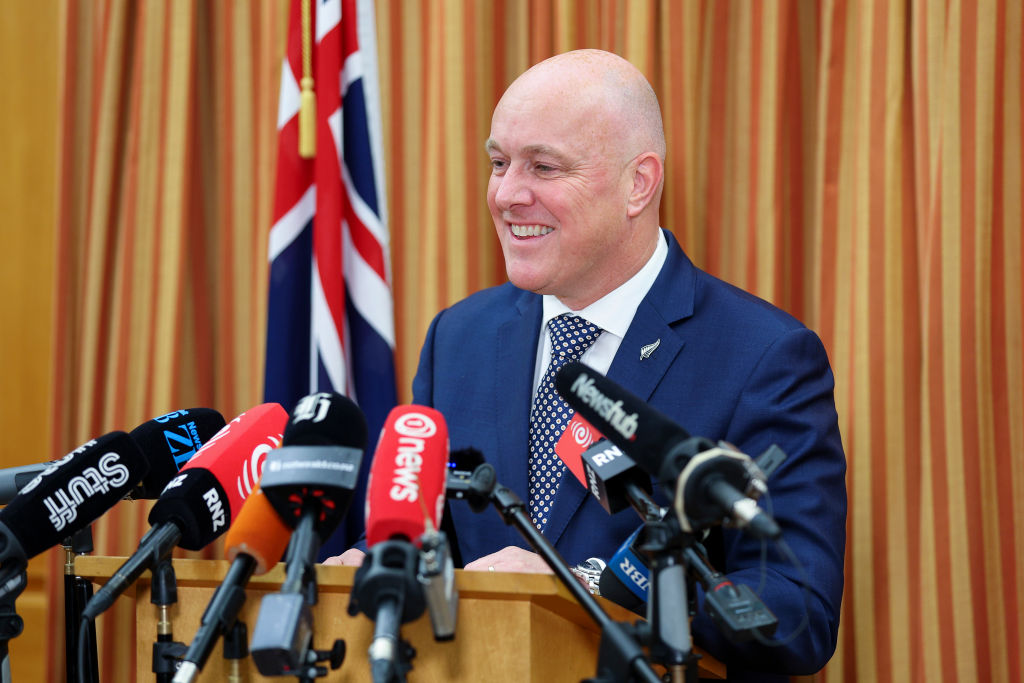New Zealanders need to embrace mining the way Australians have if they want their incomes—and that of the country—to rise, Christopher Luxon said.
It is easy to want a sovereign wealth fund and higher incomes, but New Zealanders need to begin showing support for mining to pay for it, Prime Minister Christopher Luxon told New Zealanders in his State of the Nation speech today.
He added that “too often, when it comes to economic growth, we’ve slipped into a culture of saying no.”
In his address, Luxon admitted to being almost entirely focused on the economy, despite acknowledging the importance of health, education, and other concerns.
He pointed to regions such as Taranaki and the West Coast, where he said there are “big economic opportunities” that would generate higher incomes, support for local businesses and families, and more investment in local infrastructure.
“The minerals sector will also be critical for our climate transition,” he said. “EVs, solar panels, and data centres aren’t made out of thin air. I want to see mining employ more Kiwis and power more growth in the economy, and I’m adamant we must take further steps to make that a reality.”

That involved giving state-owned Kiwibank the capacity to compete with the other, mostly Australian-owned banks in business finance; repealing and replacing the Resource Management Act, which he said was slowing down and discouraging new land development; and fixing what he called the country’s “broken health and safety rules.”
“I wouldn’t be shocked if cones were New Zealand’s fastest-growing industry,” he quipped. “They’re everywhere.”
He also promised that the government would do more to support tourism operators and farmers, though he did not offer specifics.
He announced that the job of attracting foreign investment will go to a newly-established agency called Invest New Zealand, “modelled off the success of Ireland and Singapore.”
“The objective is to increase capital investment across a range of critical sectors, like banking and fintech, key infrastructure like transport and energy, manufacturing, and innovation,” Luxon said.Crown Research Institutes will be restructured into four Public Research Organisations, focused on the bioeconomy, earth sciences, health and forensic sciences, and advanced technology. The latter agency will examine cutting-edge technologies such as AI, quantum computing, and synthetic biology.
“Each is expected to have a sharp focus on commercialisation,” the prime minister said, “harnessing Kiwi talents for maximum economic impact.”
Changes will also be introduced to universities so researchers get a greater commercial share of their own research.
He said that changes already underway, such as opening up the construction industry to competition from overseas products and reducing barriers to energy generators investing in wind, solar, hydro, geothermal, and natural gas, would also assist in growth.
“We need more jobs, more investment, more innovation, exports, and talent,” Luxon said. “The bottom line is we need a lot less no and a lot more yes.”
Opposition Leader Chris Hipkins is in the midst of Labour’s caucus retreat as it readies itself for the year ahead, but took time out to tell a press conference that Luxon “seems to have forgotten the number one issue facing most New Zealanders, which is the cost of living.”
The latest Taxpayers’ Union-Curia poll this month put Labour above National for the first time in almost two years. It also found that more people believed the country was heading in the wrong direction—53 percent, as compared to 39 percent who thought things were moving in the right direction.

